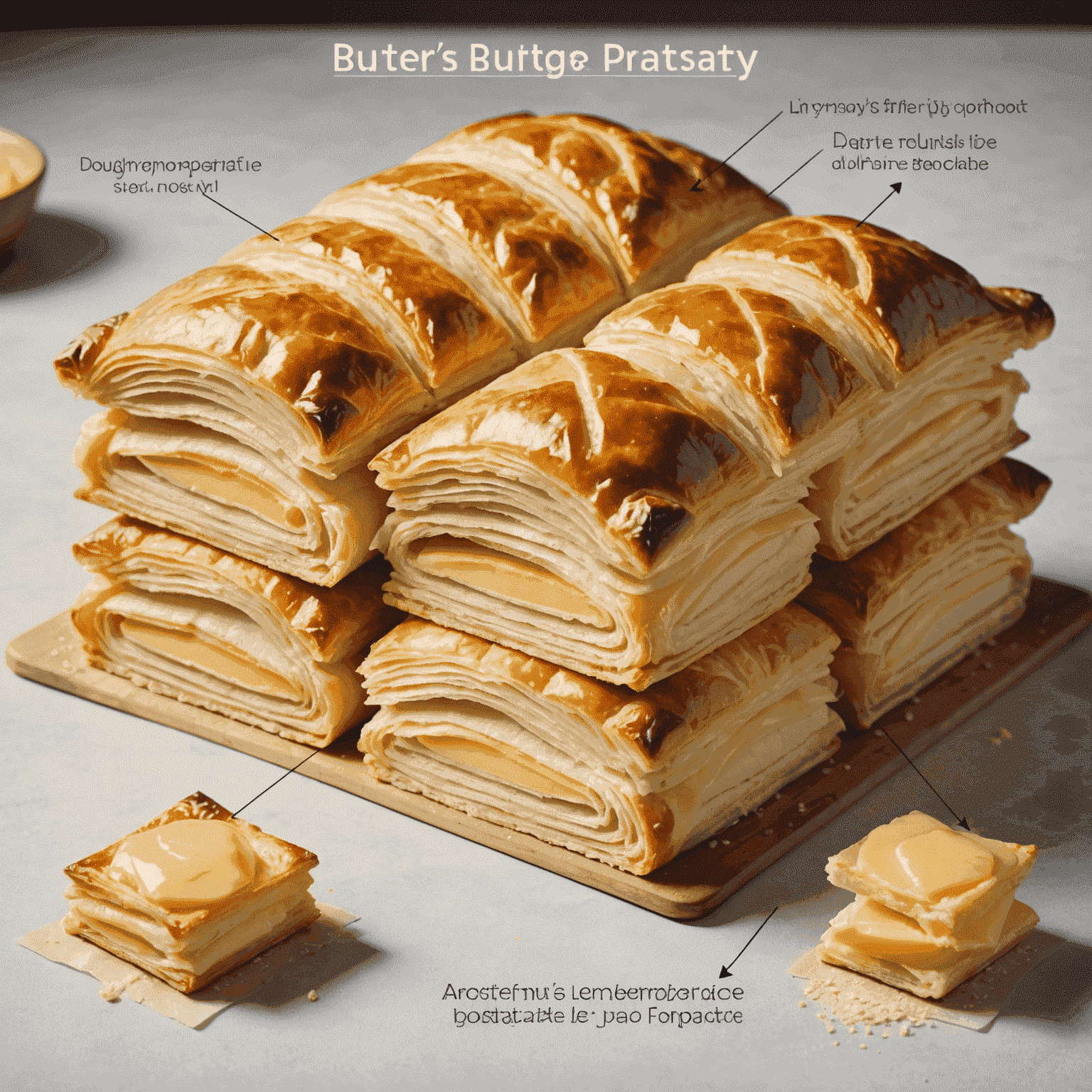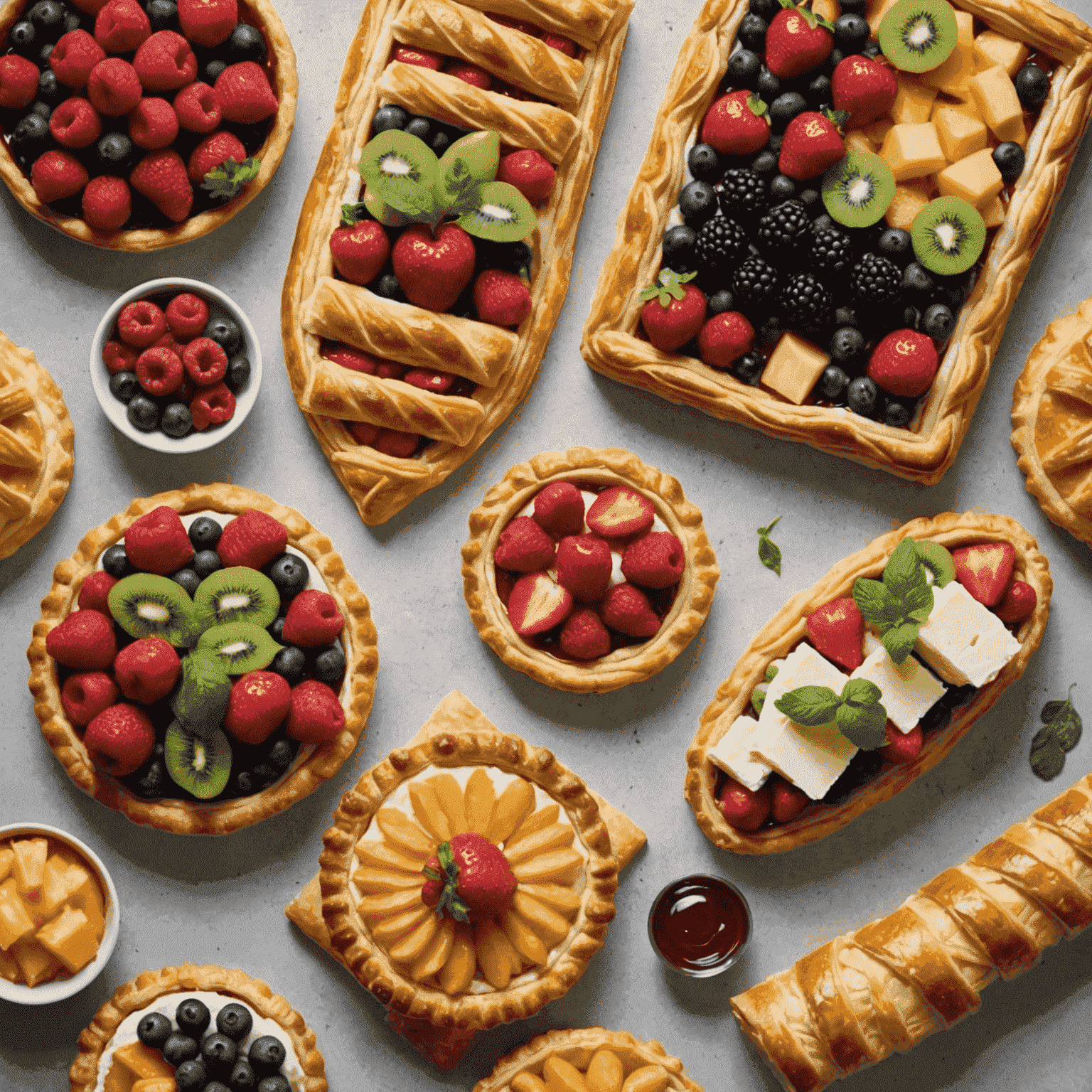Flaky Perfection: The Science of Puff Pastry

Puff pastry, with its delicate layers and buttery crispness, is a marvel of culinary science. This article delves into the secrets behind creating those light, flaky layers that make puff pastry a favorite in both sweet and savory applications.
The Basics of Puff Pastry
At its core, puff pastry is a simple combination of flour, water, salt, and butter. However, the magic lies in the technique. The process of repeatedly folding and rolling the dough creates hundreds of alternating layers of dough and butter.
The Role of Butter
Butter is crucial in puff pastry. As the pastry bakes, the water in the butter turns to steam, pushing apart the layers of dough. This process, known as "lift," is what gives puff pastry its characteristic flaky texture and impressive rise.

The Importance of Temperature
Temperature control is vital when working with puff pastry. The dough and butter must be kept cool to prevent the butter from melting into the dough. This separation of layers is what allows for the creation of the flaky texture.
The Folding Technique
The repeated folding and rolling of the dough, known as "turns," is what creates the many layers in puff pastry. Each turn multiplies the number of layers, resulting in the delicate, flaky texture we associate with well-made puff pastry.
Applications in Baking
Puff pastry is incredibly versatile. It can be used in sweet applications like napoleons or fruit tarts, or in savory dishes such as beef Wellington or cheese straws. The science behind puff pastry allows it to be a canvas for countless culinary creations.

The Baking Process
When baking puff pastry, a high oven temperature is crucial. The sudden blast of heat causes the water in the butter to rapidly turn to steam, creating that much-desired puff. The golden-brown color is achieved through the Maillard reaction, a chemical process that gives baked goods their appetizing appearance and flavor.
Conclusion
Understanding the science behind puff pastry allows bakers to create consistently flaky, delicious pastries. Whether you're crafting a delicate mille-feuille or a hearty pie, the principles remain the same. With practice and attention to detail, anyone can master the art and science of perfect puff pastry.